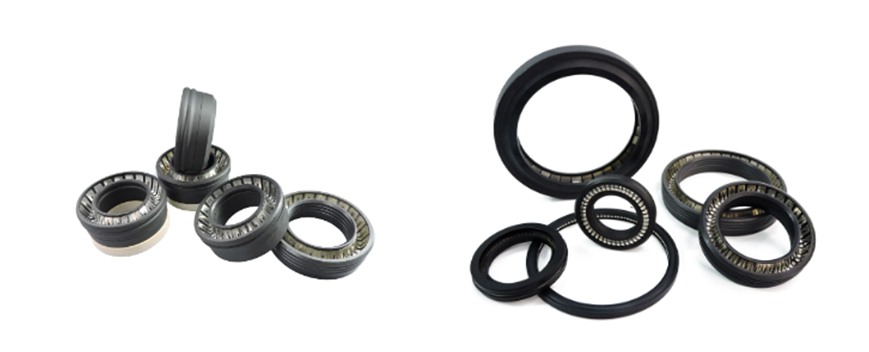23
2025
-
07
The Essential Guide to FKM Oil Seals: Performance and Benefits for Automotive Applications
Introduction
---
FKM oil seals, also known as fluorocarbon oil seals, are critical components in automotive engine systems. These seals are designed to prevent the leakage of fluids, such as oil and coolant, from engine compartments. Their unique composition, which includes fluoroelastomer materials, offers several advantages over traditional rubber seals, making them a preferred choice in many automotive applications.

One of the primary benefits of FKM oil seals is their superior resistance to high temperatures. Operating efficiently in extreme conditions, FKM seals can withstand temperatures up to 200°C (392°F) or higher, which is essential for modern engines that run hotter than their predecessors. This thermal stability ensures that the seals maintain their integrity over time, preventing leaks that could lead to engine wear or failure.
In addition to their heat resistance, FKM oil seals exhibit excellent chemical resistance. This property allows them to endure exposure to various automotive fluids, including engine oils, fuels, and coolant substances that often contain aggressive additives. The compatibility of FKM with these chemicals ensures the seals do not degrade or swell, which can compromise their sealing capabilities and overall performance.
Another critical aspect of FKM oil seals is their durability. These seals are designed to withstand the mechanical stresses and vibrations commonly found in automotive environments. Their robust construction minimizes wear and tear, leading to longer service life compared to standard oil seals. This longevity is particularly important for vehicle maintenance since replacing seals can be time-consuming and costly.
The design of FKM oil seals is also worth noting. They are engineered with precision to create a tight seal that prevents fluid leakage while allowing for the necessary movement of the engine components. The lip design of these seals can vary, offering specific advantages depending on the application, whether it be for rotary or reciprocating shafts.
In automotive applications, FKM oil seals are commonly used in various systems, including transmissions, differentials, and engine crankshafts. Their versatility makes them suitable for a wide range of vehicles, from passenger cars to heavy-duty trucks.
In summary, FKM oil seals are an indispensable component in automotive engine systems. Their high-temperature and chemical resistance, along with their durability, make them ideal for preventing fluid leaks and ensuring the efficient operation of engines. Understanding the benefits and applications of FKM oil seals can help vehicle owners and mechanics make informed decisions about engine maintenance and performance enhancement. By investing in quality seals, you can contribute to the overall health and longevity of your vehicle's engine system.
More News


